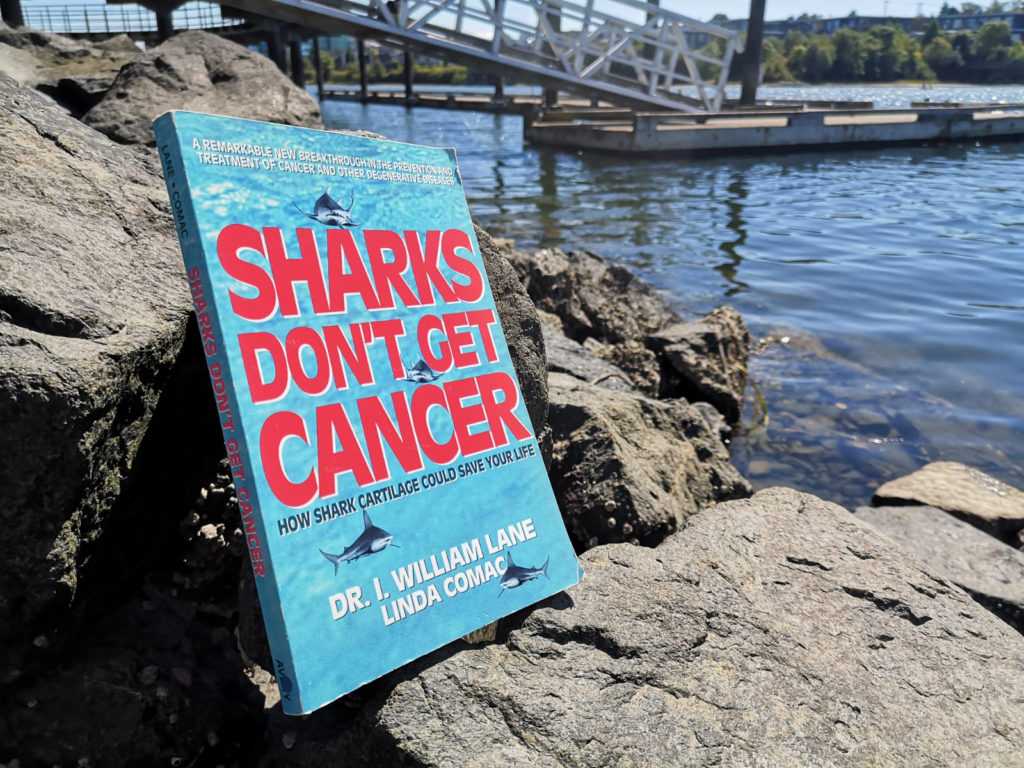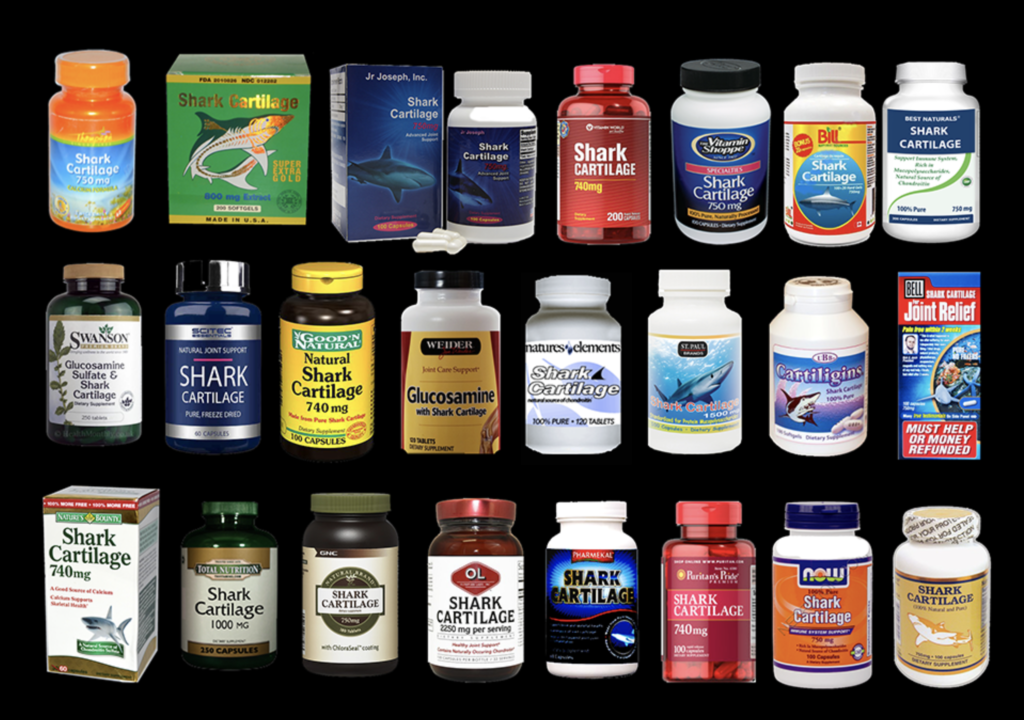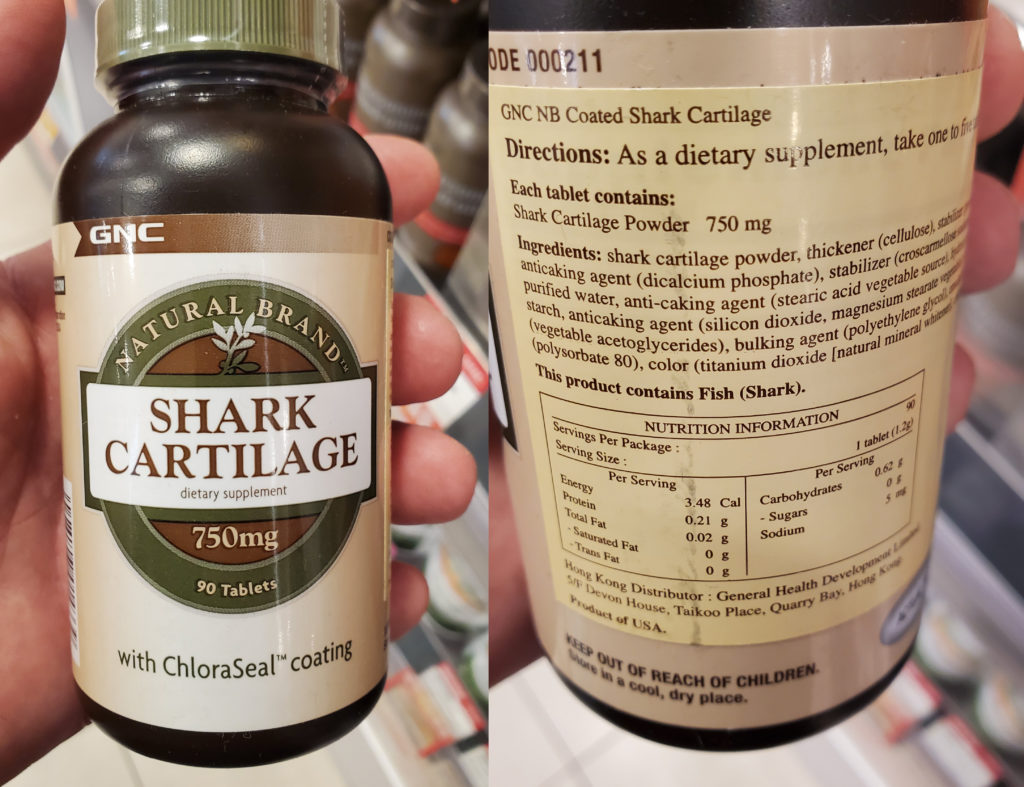
Why shark cartilage?
Efforts to conserve sharks have been largely focused on shark finning. But sharks are also targeted for their liver oil, squalene, which is used in cosmetic products; and for their cartilage, which is thought have a – seemingly never ending – list of medical properties, most notably as a cure for cancer.
The notion that shark cartilage can is a cure and/or treatment for cancer was popularized by the book Sharks Don’t Get Cancer. Despite the title of the book, it was, ironically, conceded that sharks are cancer resistant not immune. The title is therefore a sensationalist lie. The belief in such a curative power is premised on fundamentally flawed logic, as even if sharks were immune to cancer that would not mean shark products would have any curative effects.


Such claims have been actionable, with the Federal Trade Commission, in the United States, issuing a $1 million USD penalty to Lane Labs-USA for advertising shark cartilage products as: curing cancer without support clinical evidence; and making unsubstantiated dietary claims. Beyond this instance, enforcement has been incredibly rare. Non-drug products, largely supplements, are practically unregulated.
Shark cartilage products are available in an excessive variety. An extreme example of this is that, in Canada, an Amazon search for “shark cartilage for dogs” yields 153 results, with products ranging from treats to paw oils. In short, if there is money to be made – no matter how ineffective, unethical, and ecologically damaging – there are those who will take advantage. Put simply, profit is profit.
OceansAsia is currently preforming a detailed literature review to analyze (1) the medical efficacy of shark cartilage; and (2) to understand the reasons people buy into the pseudoscientific and fraudulent claims surrounding this substance. This project will allow us to hone an argument against shark cartilage’s use; and offer policy solutions to mitigate its use.
If you are interested in reading further into the medical claims both Cancer Research UK and the Milton S. Hershey Medical Center have great summaries on the topic.
By: Felix Morrow, OceansAsia Research Assistant

